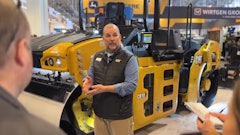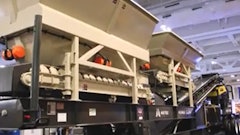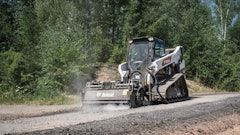
The root of the federal Highway Trust Fund’s (HTF) revenue crisis is not an antiquated gas tax, alternative-fueled vehicles dominating the U.S. automobile fleet, or improved vehicle fuel economy. The direct and obvious flaw: the federal motor fuels tax rates and other highway user fee rates have not been adjusted for more than 20 years. That’s the thrust of American Road & Transportation Builders Association (ARTBA) testimony submitted to the House Ways & Means Committee for a June 17 hearing on the “Long-Term Financing of the Highway Trust Fund.”
In its comments, ARTBA said it shouldn’t be surprising to anyone that HTF is on the verge of insolvency. The only surprising thing is that it did not happen sooner.
While the federal motor fuels tax rates have remained constant for more than 20 years, the rest of the world has moved forward. The U.S. population, highway-related freight shipments, and traffic congestion levels have all grown substantially since 1993. Over the same time frame, the price of asphalt has increased 176 percent, iron and steel 71 percent, and hourly production worker wages 85 percent, with the end result being that revenues from the motor fuels tax are buying less and less, ARTBA said.
ARTBA said the inherent problem facing the HTF is a political one, not a substantive one. Congress created two independent commissions in the 2005 surface transportation law to provide recommendations on how to stabilize the HTF. Both groups reported roughly the same conclusion: increase the federal gas tax in the short term and transition to a vehicle miles traveled fee to pay for surface transportation improvements. Despite unsupported claims about declining gas tax revenues and reduced driving, the Congressional Budget Office projects constant HTF revenues for the next eight years and U.S. Department of Transportation data show driving levels have increased for three consecutive years.
“Increasing or creating new highway user fees is the most equitable, transparent, and effective approach to address the nation’s growing surface transportation infrastructure challenges,” ARTBA’s testimony said. “Unfortunately, scorecards from professional conservative lobbyists and misconceptions about the political concerns of increasing user fees are clouding this situation.”
ARTBA cited research from the Transportation Investment Advocacy Center showing that a vote for a gas tax increase to fund transportation investments has not hurt Republicans or Democrats at the ballot box.
Ninety-five percent of all Republican state legislators who voted to increase their state gas tax to fund transportation improvements in 2013 and 2014 and ran for re-election last November won their races. That was a one percent higher winning percentage than that racked up by all state Republican legislators who voted against a gas tax increase during the prior two years. On the Democratic side, 88 percent of state legislators who voted in favor of a state gas tax increase and ran last year were re-elected, as were 86 percent who voted “no.”
ARTBA’s testimony also outlined a comprehensive policy proposal for congressional consideration as a solution to the trust fund’s revenue challenges. “Getting Beyond Gridlock” (GBG) calls for a 15 cents-per-gallon increase in the federal motor fuels tax to put the HTF back on solid financial footing and provide the first significant increase in federal surface transportation investment revenues since 1993. The ARTBA proposal would fund a six-year, $401 billion federal highway and transit investment authorization and permanently eliminate the program’s $15 billion per year “funding gap.” GBG would help grow the core highway and public transit program, and allow for new investments in the National Freight Network that would be aimed at improving the movement of goods.
To mitigate any perceived political backlash that might be caused by the proposed gas tax rate increase, ARTBA suggests the Congress provide American tax filers with an annual income of $100,000 or less with an annual tax rebate of $90 for the six-year authorization period. The rebate would return to 94 percent of all tax filers the $90 per year they would pay, on average, in additional federal gas tax.
Editor’s Note: The full text of ARTBA’s testimony can be found in the government affairs section of www.artba.org.





























